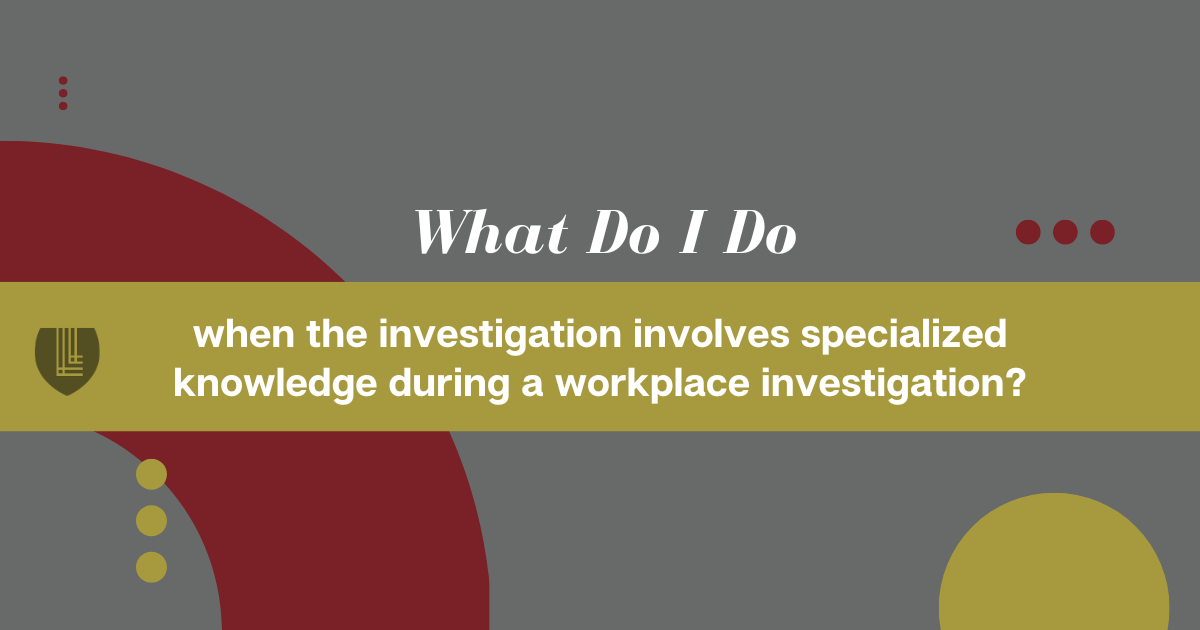Natalie Lynch is your credentialed investigator and licensed attorney, not a vlogger.
What do you do if your investigation requires really specialized knowledge?
Most of the workplace investigations that are done are around Title Seven, Title Nine policy type issues. And it’s a lot of human activity analysis – which, when you get down to it, looking at human behaviors usually doesn’t need specialized knowledge. But sure, there are other things that can come up within an investigation that do require specialized knowledge.
Part of that is often financial. So, there are other bodies of professionals that do fiscal investigations, and they generally follow the same skeleton – have a whole lot more document review than we tend to have. But they’re looking at things very differently, right? They’re looking at a lot of numbers, and where did the numbers go? And they use numbers to get back to what a human did what. And we go the other way.
And so again, I guess step one is challenge yourself. Do I actually need another investigator? Because, for financial reasons and also sort of intimidation reasons, it’s not great to be adding investigators to a matter.
So, if I have two investigators talking to one reporting party or one accused, I mean, that can be a situation that causes intimidation just by the numbers. And I’m double billing now.
And so again, I want to challenge everybody to challenge yourselves. Do I really need an expert on this? But if you do, the answer is you get your expert. And sometimes you can find somebody who does have investigative skills and expertise in other things.
I was super fortunate to do an investigation in a mental health hospital, and mental health skills do tend to convert to investigative skills pretty well. And so there’s often some crossover, and I was able to get an expert on that case when I really needed one.
But other times you just find your expert, tell them “Here’s how to do a workplace investigation in 10 minutes. I’m going to take the lead, but I need you to be there to ask questions when things get really specific and really specialized.” And they need to be able to ask the hard questions about that specialization.
And you’ve got to find somebody that has both the education and the specialization and the characteristics to be a neutral and unbiased third-party investigator at the same time – and let you take the lead in the investigation. And it can be hard. And you should think well and thoughtfully about taking on investigations that will require a specialized investigator.
For more legal investigation advice, like and subscribe.
